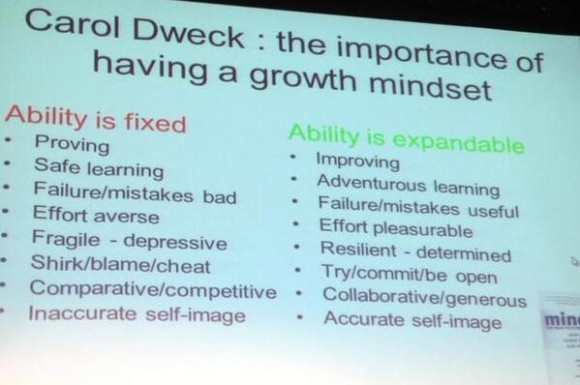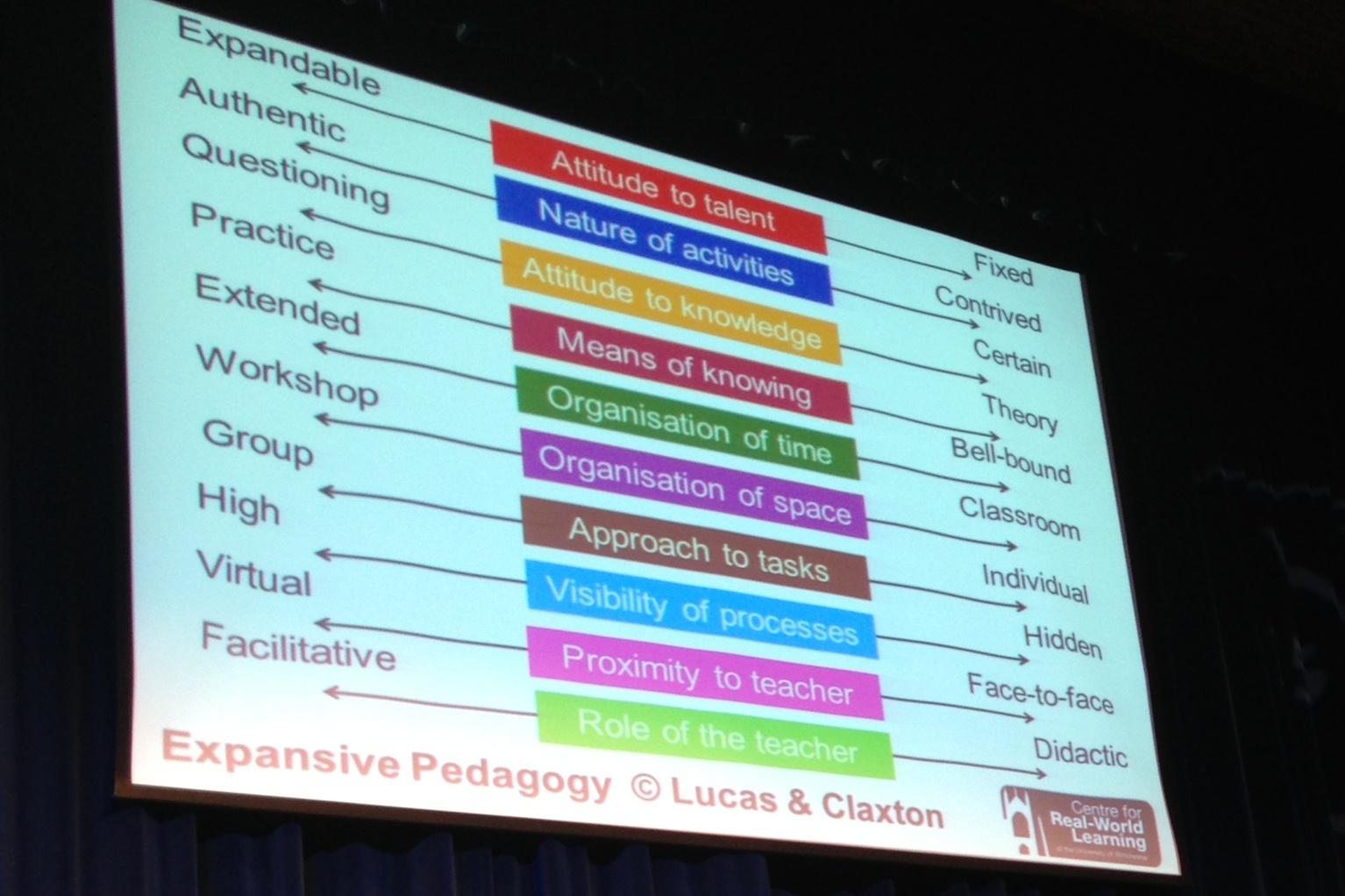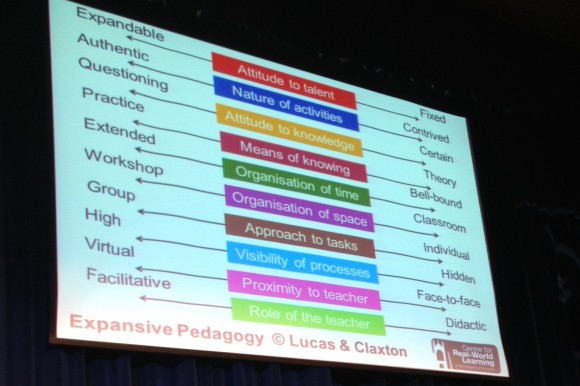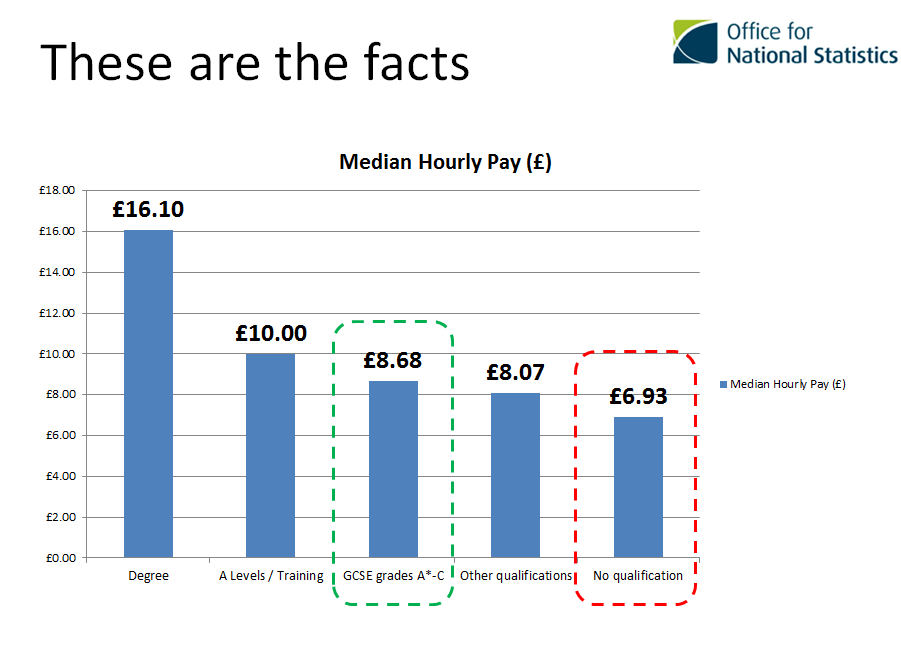Young people are actors in their own drama.
Afternoon all, here for Proj Bill Lucas, which starts with a fantastic card trick, a word puzzle and a visual puzzle that reveals that we are wired to respond with pre-learnt responses. The audience warmed and engaged, the education primed and targeted; be prepared to question your teaching, your leadership, your due north.
Expansive Education
Of course there is the game of exams and testing but also the need to create a ‘disposition for learning.’ What kind of individual are we trying to mould? What are the goals of education? What are our ideas of what it is to be intelligent? What happens beyond the school? What happens beyond teaching to learning? Certainly the importance of this final question was underlined Prof Bill Lucas use of this Hattie quote.
…the greatest effects on learning occur when teachers become learners of their own teaching, and when students become their own teachers.
What are the wider skills for learning?
The three Rs? The Claxton Rs (or four or six Rs, or your own list), it doesn’t really matter how diverse your list is, but that these communicated and reported?
Growth Mindset
There is a need for a cultural change. A change in process, and also a change in rewarding. In turn a change in reporting. A ‘could be’ rather than an ‘is’ outlook. 
Strategies for Collaboration
How can we, in a routine way, encourage and celebrate group work. Certainly @RosieMcColl has been exploring this important question.
Some final thoughts
I like the idea of visible teaching and the concept of taking the ‘learner back stage.’ The importance of teaching research, active pedagogy. Prof Bill Lucas highlighted the teacher pedagogy journal from Bay House, but the first (and one of the best) examples I ever read was shared with me by Jamie Portman. The power of the community.
Given Prof Bill Lucas offered a summary, do you consider these variables when planning or reflecting on your practice?



